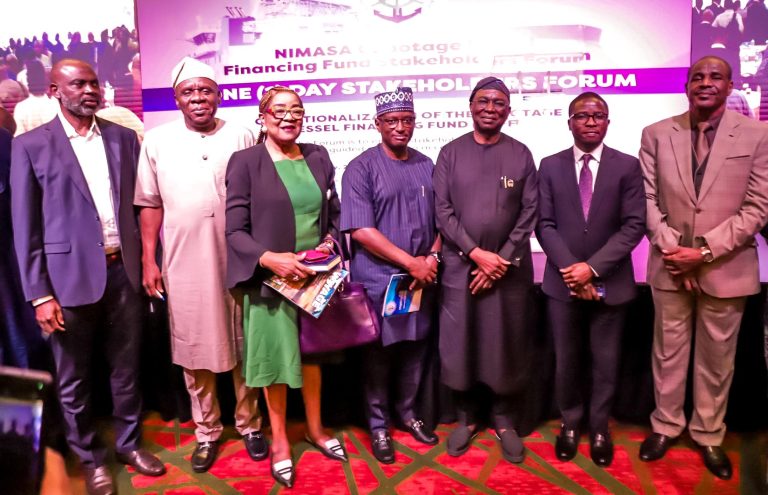- As NIWA says no plans for water transportation despite Apapa gridlock
Italy threatened on Wednesday to close its doors to all illegal immigrants, including those rescued at seas and are being brought in by foreign ships, unless other European Union countries agree to greater burden-sharing.
A source which blame the new decision on increasing pressure against the Government, posited that the threat would specially apply to ships run by Non-Governmental Organisations (NGOs), contrary to initial information, not to foreign state units operating under EU border agency Frontex and EU naval mission Eunavfor Med Sophia.
The same source said Italy’s ambassador to the EU, Maurizio Massari, was sent to meet EU Migration Commissioner Dimitris Avramopoulos and deliver the message that “Italy is dealing with a serious situation and Europe cannot turn the other way.”
“The ambassador highlighted that Italy’s efforts have been enormous and well beyond international obligations [and] under the current circumstances it is difficult for our authorities to allow further disembarkations of migrants,” an Italian diplomat added.
It was not immediately clear whether the ban against foreign NGO ships could be enacted legally.
It could affect several German vessels operated by German sea rescue charities, such as Jugend Rettet and Sea Watch.
The hard-line message filtered out of Rome following the rescue of nearly 10,000 migrants since the weekend, and in the wake of Prime Minister Paolo Gentiloni’s failure at last week’s EU summit to convince partners to take in more asylum seekers.
It also came in the wake of a Sunday local election rout for the ruling centre-left Democratic Party (PD), which several commentators blamed on public discontent with rising immigration and government proposals to grant citizenship to children of foreign residents.
The opposition Forza Italia party of former premier Silvio Berlusconi, seen as one of the winners of the local elections, said the government had responded to its urgings for a tougher line on migration.
In 2015, the EU agreed that 160,000 asylum seekers should be relocated from Greece and Italy to other member states, in the name of burden sharing.
According to the European Commission, as of early June, only about 22,500 have actually been transferred.
Italian Interior Ministry data, last updated Wednesday, showed that 76,873 migrants had landed on Italian shores since the start of the year, a 13-per-cent increase from 2016.
Arrivals are expected to increase further during the warm summer months.
In the meantime, as cargo owners continue to groan under the yoke of the Apapa gridlock, it appears there will be no quick respite while the construction of the road by the Federal Government and other stakeholders lasts, as the use of the inland waterways as an alternative is not been considered.
The Minister of Power Works and Housing, Babatunde Fashola, had stated during the signing of a Memorandum of Understanding and handing over of the project to the sponsors, Dangote Industries and Flour Mills Plc, that N4.34bn had been set aside for the rehabilitation of the road.
The two kilometres road construction between Apapa Port and Ijora end of the bridge, according to the minister, is expected to wear a better look after the construction, which will be done using concrete, while also addressing the challenge of gridlock usually encountered in the Apapa area.
He announced that the project would take about one year to complete.
The road repair, which entails closing one part of the narrow stretch, has worsened the traffic situation along the Apapa-Ijora road as well as complicating cargo evacuation.
Stakeholders say that the delays in cargo evacuation have resulted in escalating costs because of high demurrage and other charges.
According to them, trucks spend up to five days to exit Apapa.
The Nigeria Customs Service had explained that urgent repairs were needed on the road because its poor state was adversely affecting trade.
The spokesperson for the NIS, Joseph Attah, said that agencies operating at the ports had complained that the bad road was affecting port operations, adding that this was the reason why the Nigerian Ports Authority and the sponsors decided to commence work on the road.
According to the Director-General, Lagos Chamber of Commerce and Industry, Mr. Muda Yusuf, the gridlock and delays in cargo evacuation have implication for trade facilitation as foreign ships will either stop coming to Nigeria or charge extra for the amount of time they will have to waste.
He added that this was not in tandem with the vision of the government on ease of doing business.
There have been suggestions that alternative routes should be adopted to transport cargoes to and from the port.
Yusuf said that the government could immediately deploy the rails and the waterways for that purpose.
He added that cargoes could be moved in badges by sea to and from the port.
Spokesperson for the Seaport Terminal Operators Association of Nigeria, Mr. Bolaji Akinola, proposed a quick collaboration between the NPA and the National Inland Waterways Authority whereby goods could be moved by sea to and from the port.
The General Manager, Public Affairs, NIWA, Mr. Tayo Fadile, he referred our correspondent to the Lagos State Area Manager of the agency, Muazu Sambo.
Sambo told our correspondent that except for the usual routine of ferrying passengers by boat from the CMS to Apapa, there were no plans to deploy the inland waterways as alternative routes for ferrying cargoes to and from Apapa.
Additional report from Punch


















